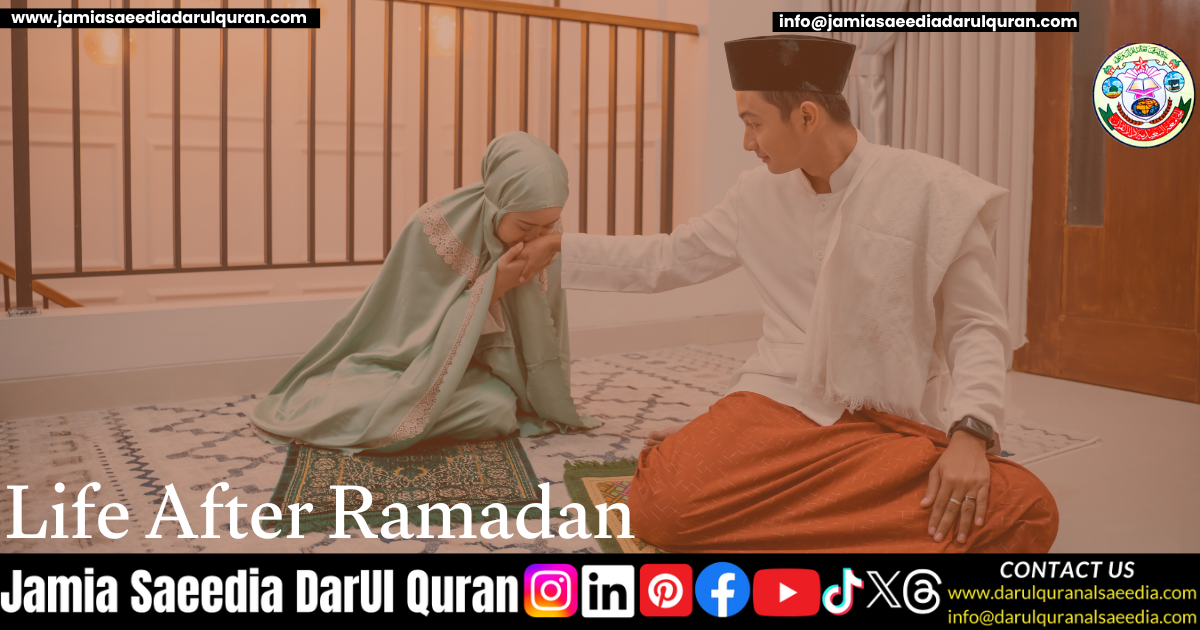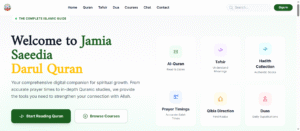Ramadan is a time of reflection, renewal, and spiritual growth. It’s a time to cultivate discipline and self-control, purify the soul, and seek divine guidance. But what do you do after Ramadan is over? How do you maintain the momentum of your spiritual journey and continue to live your best life?
The Prophet Muhammad (PBUH) was asked, “Which deeds are most beloved to Allah?” The answer lies in maintaining the good habits and practices cultivated during Ramadan. In this article, we’ll explore practical steps to ensure that your Ramadan experience has a lasting impact on your life.
Read More: What is Ramadan
Life After Ramadan?
Goodness is not confined to the month of Ramadan; it is continuous and recurring. Worship and acts of worship do not end after Ramadan. One of the greatest seasons of good deeds is the pilgrimage to the Sacred House of Allah. Muslims are encouraged to preserve what they offered during Ramadan and pledge to continue their acts of worship and obedience.
Give Thanks to Allah
Worship does not end with the conclusion of Ramadan. Continue to draw closer to Allah by performing acts of worship and thanking Him at all times. This practice was exemplified by our righteous predecessors.
Make Up Missed Days of Fasting
It is obligatory for every Muslim who missed days of fasting during Ramadan to make them up. If unable to fast, one must feed a poor person for each missed day. It is not necessary to make up the fasts immediately after Ramadan, but it should be done before the next Ramadan begins.
Seek Forgiveness
Continue to seek forgiveness from Allah. Persevere in asking for forgiveness and repeat supplications for forgiveness. Always ask Allah to bless you with goodness and erase your sins.
Reflect on the Past Month
Reflect on the acts of worship you performed during Ramadan and make them a part of your daily routine. Focus on the obligatory acts and include Sunnah practices such as the Sunnah prayers and Witr prayer.
Set New Goals
Develop a new plan of obedience and closeness to Allah. Include reading the Qur’an, engaging in dhikr, maintaining prayers, and giving charity.
Dedicate Time for Reciting the Qur’an
Reciting the Qur’an is one of the greatest acts of worship. Commit to reciting the Qur’an daily, aiming to complete it at least once every month. This practice brings immense spiritual benefits.
Continue Giving Charity
Charity is a significant act of righteousness and closeness to Allah. It extinguishes the wrath of Allah as water extinguishes fire. Continue giving charity regularly to maintain the blessings and rewards.
Establish a Good Deeds Routine
Renew your intention to persevere in obedience to Allah. Set goals for worship and strive to complete them, continuing the momentum of Ramadan throughout the year.
Be Patient and Grateful
Patience is a virtue that Muslims should always possess. Follow the example of the Prophet Muhammad (PBUH) by being patient and grateful in all circumstances.
Stay Connected to Your Community
After Ramadan, stay connected to your community by participating in events and volunteering. This fosters a sense of belonging and encourages giving back to others.
Perform Dhikr and Du’a
Dhikr and du’a are not limited to Ramadan. Continue to remember Allah and make supplications at all times. This practice strengthens your faith and connection with Allah.
Living Your Best Life
The ultimate goal after Ramadan is to live your best life. Find joy in the small moments, cherish the experiences that bring you happiness, and live in a way that honors your values and beliefs.
Conclusion:
Life after Ramadan is about maintaining the spiritual momentum and continuing the practices that bring you closer to Allah. By setting new goals, staying connected to the community, and living with patience and gratitude, you can ensure that the blessings and lessons of Ramadan have a lasting impact on your life.
Read More: The Virtue of Fasting in Ramadan
FAQs:
Q: How can I maintain the spiritual momentum after Ramadan?
A: Continue the practices of worship, charity, and reflection cultivated during Ramadan.
Q: What should I do if I missed fasting days during Ramadan?
A: Make up the missed days before the next Ramadan, or feed a poor person for each missed day if unable to fast.
Q: Why is it important to seek forgiveness after Ramadan?
A: Seeking forgiveness helps in maintaining spiritual purity and strengthening your connection with Allah.
Q: How can I incorporate Qur’an recitation into my daily routine?
A: Dedicate a specific time each day for reciting the Qur’an, aiming to complete it monthly.
Q: What are some ways to stay connected to the community after Ramadan?
A: Participate in community events, volunteer, and engage in activities that foster a sense of belonging.
Q: Why is charity important after Ramadan?
A: Charity helps in maintaining the blessings and rewards of Ramadan and benefits the community.
Q: How can I set new spiritual goals after Ramadan?
A: Develop a plan that includes regular worship, Qur’an recitation, dhikr, and charity.
Q: What is the significance of the Witr prayer?
A: The Witr prayer is an important Sunnah that complements the obligatory prayers and enhances spiritual discipline.
Q: How can I practice patience and gratitude after Ramadan?
A: Follow the example of the Prophet Muhammad (PBUH) by being patient and grateful in all situations.
Q: What role does reflection play after Ramadan?
A: Reflection helps in understanding the lessons learned during Ramadan and applying them to daily life.
Q: How can I make up missed fasts if I am unable to fast continuously?
A: You can make up missed fasts intermittently, but ensure they are completed before the next Ramadan.
Q: What are some recommended Sunnah practices to continue after Ramadan?
A: Continue the Sunnah prayers, Witr prayer, and other voluntary acts of worship.
Q: How can I ensure that I complete the Qur’an monthly?
A: Set a daily recitation goal and stick to it, even if it’s a small portion each day.
Q: What are the benefits of giving charity after Ramadan?
A: Charity brings blessings, extinguishes the wrath of Allah, and benefits the community.
Q: How can I renew my intention for worship after Ramadan?
A: Reflect on your goals, renew your commitment to Allah, and set achievable worship targets.
Q: Why is it important to stay connected to the community after Ramadan?
A: Staying connected fosters a sense of belonging, encourages good deeds, and strengthens the community.
Q: How can I perform dhikr and du’a regularly after Ramadan?
A: Incorporate dhikr and du’a into your daily routine, such as after prayers or during quiet moments.
Q: What role does patience play in maintaining spiritual growth after Ramadan?
A: Patience helps in overcoming challenges and maintaining a strong faith.
Q: How can I find joy in small moments after Ramadan?
A: Appreciate the blessings in your life, cherish moments with loved ones, and engage in activities that bring you happiness.
Q: How can I live my best life after Ramadan?
A: Live in accordance with your values and beliefs, practice gratitude, and engage in acts of worship and charity.



Leave A Comment